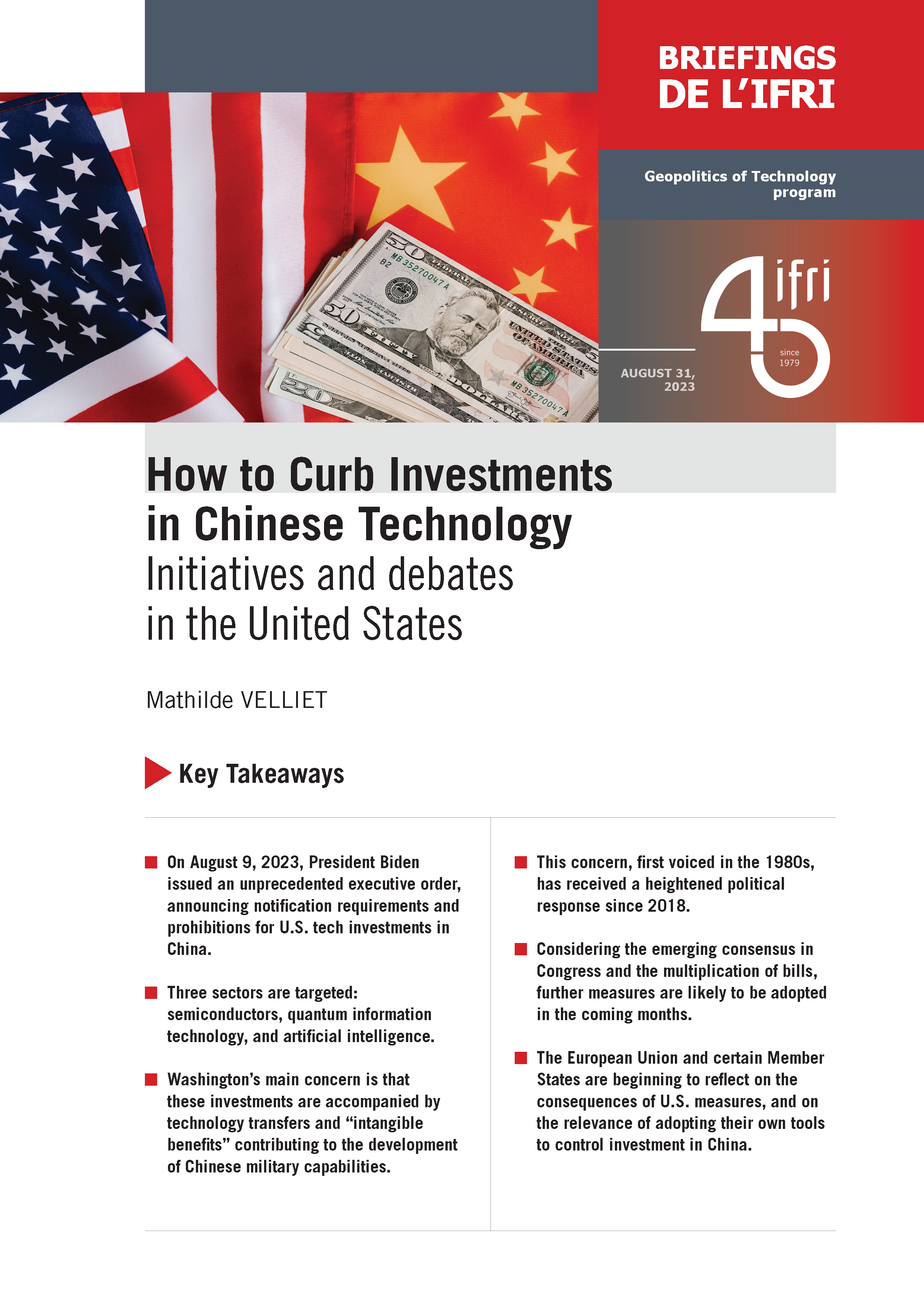How to Curb Investments in Chinese Technology: Initiatives and Debates in the United States

In a continuation of U.S. efforts to slow China's development and acquisition of strategic technologies, Washington has imposed new restrictions on American investment in Chinese technology sectors such as artificial intelligence (AI), quantum, and semiconductors.
Key Takeaways:
- On August 9, 2023, President Biden issued an unprecedented executive order, announcing notification requirements and prohibitions for U.S. tech investments in China.
- Three sectors are targeted: semiconductors, quantum information technology, and artificial intelligence.
- Washington’s main concern is that these investments are accompanied by technology transfers and “intangible benefits” contributing to the development of Chinese military capabilities.
- This concern, first voiced in the 1980s, has received a heightened political response since 2018.
- Considering the emerging consensus in Congress and the multiplication of bills, further measures are likely to be adopted in the coming months.
- The European Union and certain Member States are beginning to reflect on the consequences of U.S. measures, and on the relevance of adopting their own tools to control investment in China.

Available in:
Regions and themes
ISBN / ISSN
Share
Download the full analysis
This page contains only a summary of our work. If you would like to have access to all the information from our research on the subject, you can download the full version in PDF format.
How to Curb Investments in Chinese Technology: Initiatives and Debates in the United States
Related centers and programs
Discover our other research centers and programsFind out more
Discover all our analysesRegulatory Dynamics and Tensions in the Space Sector: Towards and Americanization of Space Law?
The development of space law has gradually evolved from a top-down normative dynamic dominated by the founding impetus of the UN to a bottom-up normativity driven by national and industrial practices. This evolution is now accompanied by growing normative competition, raising the risk of an Americanization of space law and prompting the question of a European response.
The Sustainability of Space Operations: An Opportunity for European Leadership?
As space becomes a key arena for power projection strategies, while facing growth and diversification of orbital activities, the concept of “space sustainability” is emerging as a new framework of analysis for space governance.
The “Huawei Saga” in Europe Revisited: German Lessons for the Rollout of 6G
While the European Union attempted to coordinate a collective response through its 5G Toolbox in Europe’s 5G infrastructure, member states diverged significantly in balancing political, economic, and technological considerations. Germany, despite its economic ties to China and status as Europe’s largest telecom market, only reached a tentative agreement in July 2024—one that appears largely symbolic.
European Startups and Generative AI: Overcoming Big Tech Dominance
Europe is at a crossroads. Faced with the domination of American Big Tech across the entire generative Artificial Intelligence (AI) value chain, from foundation models to cloud infrastructure, distribution channels, and open source, it risks long-term technological and economic decline. Yet generative AI also represents a major opportunity for economic transformation, with a potential value estimated at 1.5 times France’s gross domestic product (GDP). To turn it into a driver of renewal, Europe must move beyond the illusion of total technological independence and instead build an ecosystem that leverages Big Tech resources while strengthening its own innovation capabilities.












